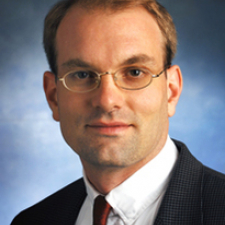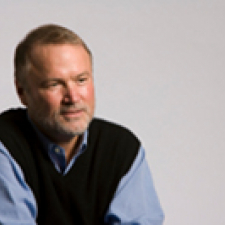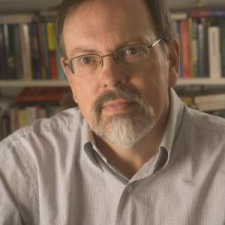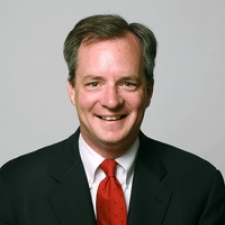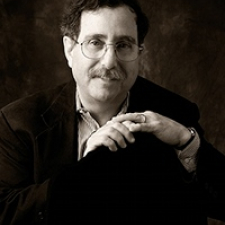Why do we do economics the way we do? How did we get here? We have all heard the names of Adam Smith, Karl Marx, John Maynard Keynes and Friedrich Hayek, but what did they really say, think, and do?
Studying the writing of the greatest minds in economics is always rewarding, but perhaps especially so in times of economic crises. At our Summer Institute, top faculty in the field together with graduate students selected from a diverse pool of national applicants will explore various aspects of the history of economics.
The Institute is organized around two, two week modules (see program) aimed at PhD students in economics programs. The first will trace the development of the ideas of seminal thinkers in economics from the middle ages to the middle of the last century. The second will provide a focused survey of historical research on contemporary economics.
Students may sign up for either or both of the two modules. The modules are open to graduate students in economics at any stage in their studies. There is a competitive application procedure with a deadline on March 4, 2011. Successful applicants will receive a stipend of $1000 a week to cover expenses. Low cost housing options will be available.
#1 Seminal Thinkers in the History of Economics
June 5 to 17, 2011; University of Colorado Denver
This short course will introduce some of the major thinkers and schools in the history of economics. The goal is to assist students in developing an undergraduate course in the field, or in incorporating material into other courses. Topics covered will include the Mercantilists, the Physiocrats, Adam Smith, Thomas Robert Malthus, the British classical school, the marginal revolution, Alfred Marshall, the American Institutionalists, John Maynard Keynes, Friedrich Hayek, and the Chicago School of Economics.
#2 Topics in the History of Contemporary Economics
July 10 to 22, 2011; Duke University
This graduate level short course will cover select topics in the history of contemporary economics. Topics covered will include the history of applied economics, welfare economics, macroeconomics, and how economics became a mathematical science.
Directors |
|
| Bruce Caldwell | Duke University |
| Tiago Mata | Duke University |
Faculty |
|
| H. Spencer Banzhaf | Georgia State University |
| Bruce Caldwell | Duke University |
| Kevin Hoover | Duke University |
| D. Wade Hands | University of Puget Sound |
| Neil de Marchi | Duke University |
| Steve Medema | University of Colorado Denver |
| E. Roy Weintraub | Duke University |
Staff |
|
| Paul Dudenhefer | Duke University |
| Angela Zemonek | Duke University |
Participants: Module 1, University of Colorado - Denver |
|
| Agirdas, Cagdas | Univ. of Illinois |
| Ahmad, Shameel | Yale University |
| Asher, Samuel | Harvard |
| Bailey, James | Temple |
| Bilo, Simon | George Mason University |
| Botsch, Matthew | University of California-Berkeley |
| Brent, Jason | Univ. of North Carolina |
| Bryan, Kevin | Northwestern University |
| Burfield, Chris | University of North Carolina Greensboro |
| Cosic, Damir | CUNY |
| Douglas, Rachel | University of Texas at Austin |
| Fei, Fan | University of Michigan |
| Fraile, Miguel Amputa | Boston University |
| Hirschman, Daniel | University of Michigan |
| Honig, Dan | Harvard |
| Johnson, David M. | New York University |
| Leeds, Adam | Univ. of Pennsylvania |
| Liu, Lin | University of Rochester |
| Plagborg-Moller, Mikkel | Harvard |
| Reed, Tristan | Harvard |
| Singleton, John | Univ. of Colorado-Boulder |
| Skosples, Goran | Ohio Wesleyan Univ. |
| Sullivan, Brian | Univ. of North Carolina |
| Hsu, Chih Ting | Syracuse |
| Wagle, Swarnim | Harvard |
| Wong, Ho Po | Univ. Washington-Seattle |
| Woodworth, David N. | Johns Hopkins University |
Participants: Module 2, Duke University |
|
| Ahmed, Neveen | NC State |
| Arolas, Héctor Pifarré | Toulouse School of Economics |
| Ballandonne, Matthieu | Univ. of Angers |
| Baqaee, David | Harvard |
| Bostwick, Valerie Kay | Univ. of California Santa Barbara |
| Botsch, Matthew | University of California Berkeley |
| Curtis, Earnest Markell IV | Georgia State |
| Farooque, Omar | Northwestern University |
| Fei, Fan | University of Michigan |
| Johnson, David M. | New York University |
| Liu, Lin | University of Rochester |
| Puy, Damien | European Univ. |
| Singleton, John | Univ. of Colorado-Boulder |
| Sullivan, Brian | Univ. of North Carolina |
| vom Lehn, Christian | Princeton |
| Warshaw, Evan | Michigan State |
| Winberry, Thomas Randall | Princeton |
| Wong, Ho Po | Univ. Washington-Seattle |
| Yao, Jiaxiong | Johns Hopkins Univ. |
| Zhou, Huan | University of North Carolina |
Bios of the faculty
|
Spencer Banzhaf is an Associate Professor in the Dept. of Economics at Georgia State University. He is also a Research Associate at the National Bureau of Economic Research (NBER) and a Senior Research Fellow at the Property and Environment Research Center (PERC). Banzhaf's work focuses on environmental policy analysis, especially related to the urban environment and to issues related to air pollution and energy. He also studies the history of applied welfare economics. His work has been published in such journals as the American Economic Review, International Economic Review, and History of Political Economy.
|
|
Bruce Caldwell is a Research Professor of Economics and the Director of the Center for the History of Political Economy at Duke University. He is the author of Beyond Positivism: Economic Methodology in the 20th Century (1982) and of Hayek's Challenge: An Intellectual Biography of F. A. Hayek (2004). Since 2002 he has served as the General Editor of The Collected Works of F. A. Hayek, a multi-volume collection of Hayek's writings. A past president of the History of Economics Society, Caldwell has held research fellowships at New York University, Cambridge University, and the London School of Economics, and is a Life Member of Clare Hall, Cambridge. He is President of the Southern Economic Association.
|
|
D. Wade Hands is Distinguished Professor of Economics at the University of Puget Sound in Washington state and has taught history of economic thought for over thirty years. He has written on a wide range of topics in the history of economic thought and economic methodology. He is co-editor of The Journal of Economic Methodology and the author of Reflection Without Rules: Economic Methodology and Contemporary Science Theory, Cambridge University Press, 2001. His Agreement on Demand: Consumer Choice Theory in the 20th Century, edited with Philip Mirowski, was published in 2006 by Duke University Press and The Elgar Companion to Recent Economic Methodology, edited with John B. Davis, will be published in 2011.
|
|
Kevin D. Hoover is Professor of Economics and Philosophy at Duke University. Educated at the College of William and Mary, the University of St. Andrews, and Balliol College, Oxford, he has previously held positions at the Federal Reserve Bank of San Francisco, University of Oxford (Balliol College, Nuffield College, and Lady Margaret Hall), and the University of California, Davis. He is past president of the History of Economics Society, past chairman of the International Network for Economic Method, past editor of the Journal of Economic Methodology, and current editor of the journal History of Political Economy. He is the author of more than one hundred books and articles in a variety of areas, including the history of economics, macroeconomics and monetary economics, and the methodology and philosophy of economics and econometrics.
|
|
Steven G. Medema is Professor of Economics and the Director of the University Honors and Leadership Program at the University of Colorado Denver. His research focuses on the history of twentieth-century economics, and his latest book, The Hesitant Hand: Taming Self-Interest in the History of Economic Ideas (Princeton, 2009), was awarded the 2010 Book Prize by the European Society for the History of Economic Thought. Dr. Medema teaches courses in microeconomics and the history of economic thought and in 2008 was designated a University of Colorado President's Teaching Scholar, the highest teaching honor conferred within the University of Colorado system. Dr. Medema served as Editor of the Journal of the History of Economic Thought from 1999-2008 and is a member of the editorial boards of several history of economics journals. He was elected President of the History of Economics Society for 2009-10.
|
|
Roy Weintraub was trained as a mathematician and began his career as a mathematical economist. In the 1980s he reconstructed his research and teaching activities to focus upon the history of the interconnection between mathematics and economics in the twentieth century. That work, in the history of economics, helped shape the understanding of economists and historians: his General Equilibrium Theory (1985), Stabilizing Dynamics (1991), Toward a History of Game Theory (ed.) (1992) and How Economics Became a Mathematical Science (2002) charted the transformation of economics from a historical to a mathematical discipline. In recent years his work has turned more self-consciously historiographic, resulting in edited volumes on The Future of the History of Economics (2002) and Economists Lives: Biography and Autobiography in the History of Economics (2007).
|
